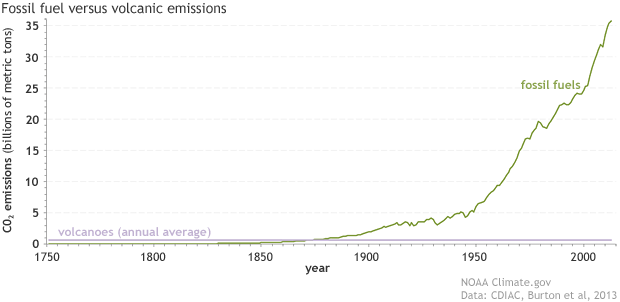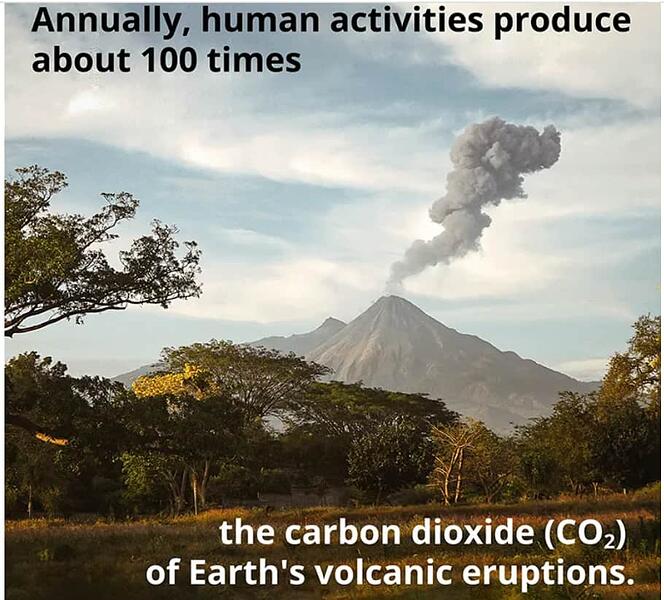We only see what we are meant to see Annie… ![]()
SPOT ON Conradd. You have just saved me from tying almost the same script ![]()
Me too LongDriver… ![]()
the plastic in your system absorbed from food is telling you that…
Just a rumour Annie, there’s nothing wrong with me… ![]()
Respectfully, we do. If we are talking about trillions of dollars in funding based on anthropogenic factors, the general public and powers that be will never be convinced (nor should they necessarily be) without research-driven data - and proof of causation as opposed to correlation. Of late, it seems that the most vociferous advocates of whatever cause manipulate data and cherry pick studies to support their needs, but ignore peer-reviewed studies when they don’t. Although enough anecdotal evidence can become longitudinal data, one study (or even twenty) does not make for theory if there is evidence to the contrary. Therein lies the conundrum.
My interest is greatly driven by stewardship of ecosystems, but it goes back to the problem of correlation and causation, and whether causative intervention will make much of a difference anyway. After all, nature treats life without compassion, using extinction as a means to drive evolutionary “progress.” We still do what we what we can, and in voices like yours drive the research, but it might be the most deadly thing of all to be dismissive of empirical analysis.
Obviously it is the micro-electronic insert pushed into your arm when you got vaccinated, duh.
However, the inert tiny bits of plastic are definitely in all our systems. They’ve found small particles of fibre glass in mussels. They’ve found micro-plastics in baby boys’ testicles.
That probably doesn’t impact the climate of course. But is there any doubt at all that the climate is changing? Is there any doubt at all that this change will be detrimental? Answer to both is ‘no’.
The debate therefore appears to be about what is causing this change and whether human action can beneficially affect this change.
All the data (note, data not projections) tells us that the cause of the changes in climate is significantly due to increases in greenhouse gases such as CO2. These are definitely increasing. And the rise in Co2 is definitely caused by human actions (burning stuff, deforesting, breeding livestock, etc.). There is no real debate on this, it is confirmed information. The only question here is whether other things are also contributing and by how much.
The second debate relates to if human action can address this issue of CO2 rise. Obviously not doing the CO2 producing things we that are currently doing would have an impact. That could not be clearer. Where is the debate then?
First question, will that have a big, or delayed or negligible impact?
Second question, is about priority - what do we stop, which countries stop first, which industries stop first, what are the costs of stopping and we can afford them?
Is this sarcasm or do you actually believe this Lincs…
![]()
The amount of CO2, and even worse, Methane is produced in one volcano, than man produces in one year. When you consider that there are usually about 30 active volcanoes constantly spewing out pollution and noxious gases.
Add to this that every ‘green’ thing produces CO2 as soon as the sun goes down…
And every decaying organic substance produces methane…
There have been times in history when the CO2 was far higher than the 0.04% that it is now.
When the planet warms, more water is taken up from the oceans, the result is clouds. Clouds protect us from the heat and the planet cools. Clouds do not produce heat, they hold the heat in until it eventually cools. This is the earths natural thermostat, and as long as the planet contains water, it will remain habitable by the human species. Venus is a good example of what earth would be like if no water existed. Did you learn nothing in your science lessons at school?
Sorry, that is completely false. The total CO2/methane produced by all the volcanos on the planet is tiny compared to that produced by man.
I agree with this. IMO it’s our own extinction that we will have to deal with. Nature will gobble us up.
There are too many variables but it’s not too late to stop destroying habitats or chopping down ancient forests.
Ok I’m trying to work out whether one of you is talking man singular and the other mankind.
Good graph Bruce, where did you find that one…? Probably financed by the ‘Go Green’ Lobby… ![]()
Now I’ll go and find one financed by OPEC…
And if that’s not enough…How about the thousands of square miles of bushfires and forest fires that are rife in Australia, North America, Greece, Spain, etc each dry season? Hows that for ‘Burning Stuff’
The data source is on the picture.
Why do you not just gracefully acknowledge that you claim you made was completely wrong and that you in the future will do better than copy and paste fake information from the very, very dubious sources you tend to prefer. Your info was wrong and your thinking, being informed by such erroneous info, is also wrong.
More significantly, say you have a bit of a point about “natural” CO2 emissions. Perhaps if we added up all the ongoing & part of the planet CO2 emissions (volcanoes, fires, animal farting, whatever) and its possible to accurately calculate it, And perhaps that total reaches a reasonable percentage of man-made CO2 emissions. Say half. The logical takeaway from that is: wow, its already bad, we really need to cut down man-made CO2 emissions so we don’t end up with three times what would have happened naturally. The dumb reaction is: hey, look, there’s lots out there already, what does twice as much again matter?
I was reading comments by a retired North California forest firefighter guy, in light of lots of fires raging up the western coast.
He gave various insights never mentioned by MSM, such as:
Mexico doesn’t have the problem to same extent , he says because they let them burn properly without much intervention so that there are less fires overall
That they used to clear the understory but not now, which is very much an issue
That bug’s devastating trees leaves them dead thus much drier
That many are started by eco warriors trying to get everyone panicking about climate change
Not to mention the fact that California imported eucalyptus trees and grew them en masse, They burn rather well. It’s the oil ya know.
Yes Annie, NASA would say that wouldn’t they, being as they are one of the major contributors of pollution and noxious gases into the atmosphere…
So the problem with CO2 is because we burn stuff?
We couldn’t survive on this planet if we didn’t ‘Burn Stuff’ The food you eat is burnt to produce the energy and hot air that you produce. And as for Volcanoes, when the contents of the bowels of the earth spew out onto the land above (from a bubbling cauldron of molten rock) does it not ‘Burn Stuff’? When you say ‘Man Made CO2 production is greater than that produced in nature’ have you any concept just how big this planet is? Man occupies a very small part of it…


